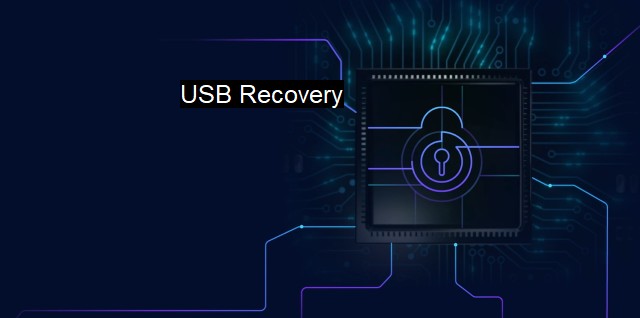What is USB Recovery?
The Crucial Role of USB Recovery in Ensuring Cybersecurity: Safeguarding Personal and Professional Data
USB Recovery is a complex process that primarily involves recovering and safeguarding data stored on a Universal Serial Bus (USB) device. USB recovery assumes considerable significance as it provides a reliable method of restoring and protecting data, which may get compromised due to various malware and cyber attack threats.USB recovery revolves around the procedure enlarging the data's operability concerning securing the saved information from any possible harm. This encapsulates different malware types, including viruses, Trojans, ransomware, spyware, and other potentially unwanted applications (PUAs). USB recovery is typically carried out using specialized recovery tools designed to detect and eliminate threats carried by these malware from USB drives, helping to protect and save sensitive and valuable data.
In the world where digital data is at constant risk from various online threats, the importance and need for USB recovery cannot be overstated. USB drives are regularly used for data transfer, making it an easy target for cyber-attacks. Malware-infected data transferred from one system to another via USBs is a common occurrence, jeopardizing both systems' security in the process. Therefore, USB recovery acts as a proactive measure which can prevent data and system compromises from preventing virus spread.
In an antivirus context, USB recovery involves the execution of a deep scan process focusing on your USB drive. In this process, the antivirus software thoroughly examines each element of the USB drive, spotting and eradicating any detected viruses. This is not limited to the visible data; the antivirus software also scans the invisible areas, such as sectors and other smaller regions where viruses and malware could potentially hide.
More advanced antivirus tools even have heuristic detection capacities. They go beyond looking for well-known threats or signature-based infections; these tools can also detect harmful elements which have never been encountered before. This ensures a higher level of protection through USB recovery, making it harder for any harmful entity to remain undetected and consequently protecting data stored on the USB drive.
As much as having a strong antivirus program matters in fighting online threats, USB recovery is essential to ensure that data loss due to corruption, accidental deletion, or virus attack is minimal. The process essentially includes data recovery tools to restore deleted or corrupt files from a USB drive. This is crucial because a malware-infected USB drive can, if not handled properly, experience data corruption or loss, with some or all of its files becoming inaccessible, lost, or deleted.
USB recovery in cybersecurity and antivirus refers to the methodology of both protecting and recovering data from a USB drive which has been a victim or is at risk of virus attacks. This includes ensuring that such drives are free from any harmful entities, which might corrupt or steal sensitive information through deep scan processes and highly evolved detection techniques. Further, USB recovery focuses on restoring access to lost or corrupted files, ultimately extending a higher degree of safety to digital data. With the growing data threats, the need for robust USB recovery systems is becoming increasingly vital in the digital landscape.

USB Recovery FAQs
What is USB recovery?
USB recovery is the process of retrieving data that is lost, corrupted, or deleted from a USB storage device. The recovery process involves using specialized software or tools to scan, locate, and restore the lost data on the USB device.How can I recover data from a corrupted USB drive?
You can recover data from a corrupted USB drive using an antivirus software or a USB recovery tool. The first step is to scan the USB drive for viruses or malware that may have caused the corruption. Next, use the recovery software to scan and recover the lost data on the USB device. It is important to note that some data may be permanently lost if the corruption is severe.Can cybersecurity threats affect my USB drive?
Yes, cybersecurity threats such as viruses and malware can infect and damage USB drives. These threats can cause data corruption, loss, or theft from the USB drive. It is important to ensure that your antivirus software is up-to-date and that you avoid using USB drives from unknown sources.What are the best practices for USB data recovery?
The best practices for USB data recovery include ensuring that you have an updated antivirus software installed on your computer, avoiding using USB drives from unknown sources, and regularly backing up your data to prevent complete data loss. Additionally, it is important to use a reliable and safe USB recovery tool to avoid further data loss or damage.| | A | | | B | | | C | | | D | | | E | | | F | | | G | | | H | | | I | | | J | | | K | | | L | | | M | |
| | N | | | O | | | P | | | Q | | | R | | | S | | | T | | | U | | | V | | | W | | | X | | | Y | | | Z | |
| | 1 | | | 2 | | | 3 | | | 4 | | | 7 | | | 8 | | |||||||